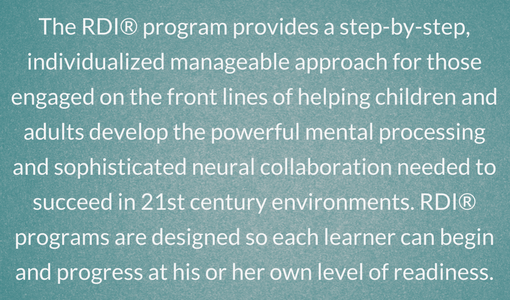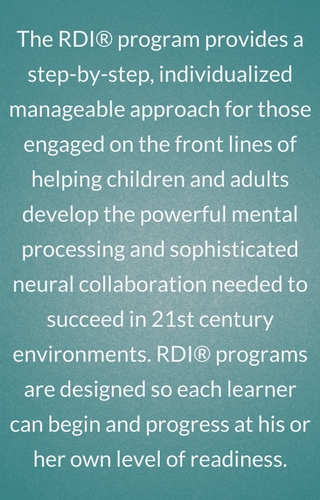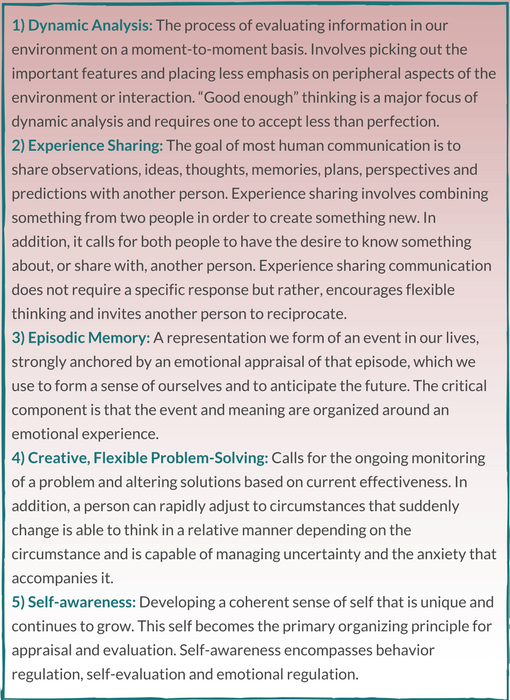 Autism with Excellence
Autism with Excellence
Offering support and services for persons on the Autism
Spectrum, their families and professionals in the field

Kimberly Isaac-Emery
Autism with ExcellenceSpectrum, their families and professionals in the field
Relationship Development Intervention (RDI®)
Relationship Development Intervention (RDI®)

RDI is a significant departure from traditional ASD interventions, and does not simply seek to mask the condition with scripted conversations or rehearsed behaviors, but actually makes neuro-cognitive changes over time that provide the individual with the skills needed to navigate life’s challenges on their own. By developing this capacity for dynamic thinking we open the door to the possibility of a greater quality of life, one that includes: reciprocal communication, confident independent living, prolonged relationships, and meaningful employment.
RDI is a significant departure from traditional ASD interventions, and does not simply seek to mask the condition with scripted conversations or rehearsed behaviors, but actually makes neuro-cognitive changes over time that provide the individual with the skills needed to navigate life’s challenges on their own. By developing this capacity for dynamic thinking we open the door to the possibility of a greater quality of life, one that includes: reciprocal communication, confident independent living, prolonged relationships, and meaningful employment.

Is Your Teen with autism Struggling with their Social Life?
We can Help!

The good news: Brains change throughout life! The brain is a dynamic entity. Neurologists agree that the brain develops the potential for rapidly making different kinds of connections as needed, based on the types of challenges presented. Through careful, systematic remediation, we can help the brain develop more normally.
Remediation implies that we are embarked on a long-term marathon, not a sprint; a systematic process of correcting deficits to the point where they no longer constitute obstacles to reaching one’s potential and attaining a quality of life. Remediation provides a second chance to master areas where developmental disability would otherwise lead to life-long marginalization and failure. When we remediate, we purposely focus on the person’s greatest areas of weakness. On a neural level, remediation in RDI means deliberately developing the brain’s capacity for integration and productive neural collaboration. RDI is an intervention dedicated to treating the core deficits of autism spectrum disorders, PDD-NOS, executive functioning disorders, and other developmental delays. Prior to beginning, families are extensively assessed and provided with specific tools and objectives to remediate (treat until they are no longer deficits) the core deficits of autism spectrum disorders. Below is a brief list of the core deficits that are treated. Consultants provide support and training that is carefully staged and tailored to you, your level of readiness, learning style, unique culture and your real-life circumstances.
Visit RDIConnect, www.rdiconnect.com for more information.